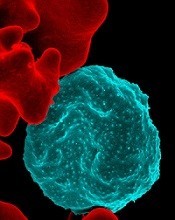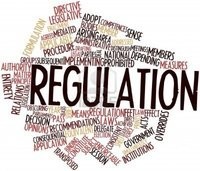The US Food and Drug Administration (FDA) has released new guidance on hydroxychloroquine and chloroquine, which have been raised by President Trump as treatments for coronavirus, despite limited evidence.
Hydroxychloroquine is the hydroxy (-OH) form of chloroquine, a less toxic derivative of the original compound. Both are used to treat malaria, as well as auto-immune disorders such as lupus.
After a French study [1] claimed hydroxychloroquine could be used to treat coronavirus, President Trump hailed it a ‘game changer’ in the fight against the pandemic. However, the study is since being investigated by the journal after concerns were raised about its quality.
While studies are ongoing worldwide to further investigate the use of hydroxychloroquine in COVID-19, the evidence is currently uncertain and there may be dangerous side effects to taking the drug, from abdominal pain and nausea to serious effects on the heart.
Despite this, 30 million doses of hydroxychloroquine sulfate were donated to the US government by Sandoz and one million doses of chloroquine phosphate were donated by Bayer. An Emergency Use Authorization (EUA) issued by FDA at the end of March 2020 allowed these donations to be distributed to States.
Even with these donations, intense media coverage has led to shortages which are particularly affecting lupus patients, for whom hydroxychloroquine is an essential treatment.
In light of these shortages, in April 2020, FDA released new guidance on the use of both hydroxychloroquine sulfate and chloroquine phosphate. The new product-specific guidances (PSGs) aim to support the development of generic versions of the compounds, which will help to increase supply.
The PSG for chloroquine clarifies that the product is AA rated in the Orange Book, which means there are no known bioequivalence issues and in vivo studies are not necessary.
The revised PSG for hydroxychloroquine provides additional advice about a Biopharmaceutics Classification System-based biowaiver option. This means manufacturers can request a waiver for in vivo testing, provided they can show high solubility, rapid dissolution and that the formulation is ‘qualitatively the same and quantitatively very similar’.
The agency also says it is prioritizing the review of abbreviated new drug applications (ANDAs) for these compounds.
This updated guidance follows on from the agency’s earlier statement on coronavirus [2], which addressed concerns about impacts on the supply chain and plant inspections from the pandemic.
Related articles
Chinese company makes copy of patented coronavirus treatment remdesivir
WHO prequalifies antiparasitic API
Europe calls for more drugs repurposing
References
1. Gautret, P, Lagier J-C, Parola P, et al. Hydroxychloroquine and azithromycin as a treatment of COVID-19: results of an open-label non-randomized clinical trial. Int J Antimicrob Agents. 2020 Mar 20;105949. In Press.
2. GaBI Online - Generics and Biosimilars Initiative. FDA’s response to coronavirus [www.gabionline.net]. Mol, Belgium: Pro Pharma Communications International; [cited 2020 May 4]. Available from: www.gabionline.net/Pharma-News/FDA-s-response-to-coronavirus
Permission granted to reproduce for personal and non-commercial use only. All other reproduction, copy or reprinting of all or part of any ‘Content’ found on this website is strictly prohibited without the prior consent of the publisher. Contact the publisher to obtain permission before redistributing.
Copyright – Unless otherwise stated all contents of this website are © 2020 Pro Pharma Communications International. All Rights Reserved.








 0
0











Post your comment